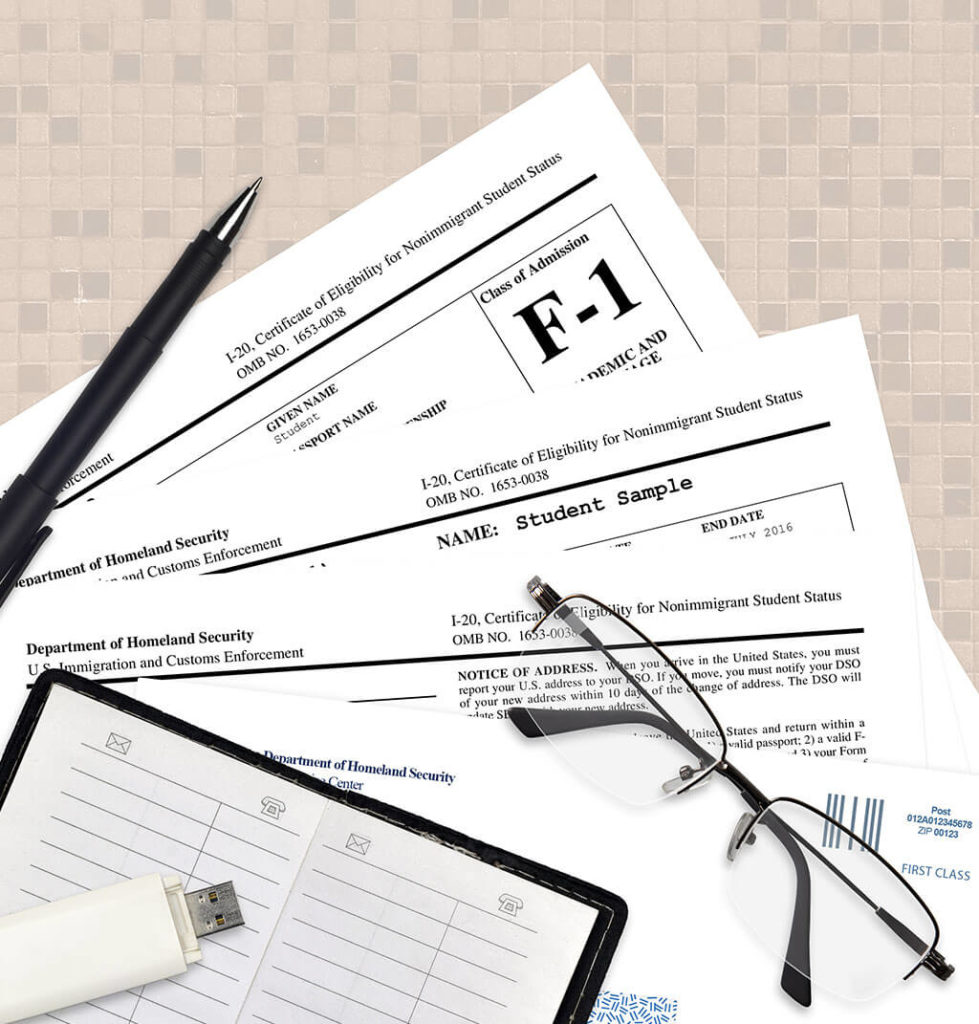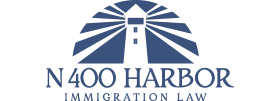Student Visa Assistance
from an Experienced Immigration Lawyer
Are you looking to obtain a student visa? We can help.
Working with an immigration attorney can help. At N400 Harbor Immigration Law, we specialize in helping students apply for student visas to study full-time in the United States. We are a full-service immigration law firm dedicated to assisting those wanting to move, work, or study in the United States. If you want to complete academic studies in the US, you must obtain an F 1 student visa.
Obtaining a visa includes several steps and specific eligibility requirements. The process can be complex, which is why many foreign students choose to work with an immigration lawyer. N400 Harbor Immigration Law is ready to assist with your educational goals. We are available to help you navigate the process of obtaining a student visa.
Table of Contents
What is an F1 Visa?
An F1 visa is issued to eligible foreign students who want to study in the United States.
An F1 Visa allows you to enter the US as a full-time student at approved universities, colleges, and other academic institutions.
An F1 visa may be issued for a period of up to five years. However, you can only remain in the US for up to 60 days beyond the time needed to complete your academic program.
Before submitting your student visa application, you need to obtain a Form I20.
The Form I-20 is a document issued by designated school officials (DSOs) at approved schools and vocational centers. The Certificate of Eligibility for Nonimmigrant Student Status (Form I-20) is necessary for nonimmigrants wanting to study in the United States.

After gaining acceptance to a Student and Exchange Visitor Program (SEVP), students receive one of two forms:
- Form I-20 for Academic and Language Students (F-1)
- Form I-20 for Vocational Students (M-1)
Foreign students enrolling in academic studies or language training programs receive the F-1 classification. Students pursuing vocational training receive the M-1 classification.
Form I-20 lists the date that you are allowed to enter the US. According to the Department of Homeland Security (DHS), an F-1 student visa may be issued up to 120 days before the start of classes. However, you can only enter the US up to 30 days before the start date of your classes.

How Can I Apply for an F1 Visa in the USA?
Applying for a student visa involves several steps
These steps might get complicated, but we are here to help. Contact us at any time to assist you with this process.
- Enroll at a SEVP-approved school
- Receive Form I20
- Pay the SEVIS Fee
- Apply for a Nonimmigrant Visa (DS-160)
Those who are already in the US with another nonimmigrant status may apply to change to student status. This involves the same steps needed for the F1 visa. However, you must submit Form I-539 to extend/change your nonimmigrant status.
You need to complete the steps in the order listed. Here is a closer look.
Enroll at a SEVP-Approved School
Before seeking a student visa, you need to enroll and gain acceptance to a Student and Exchange Visitor Program (SEVP)-certified institution.
Examples of the types of schools that require an F1 visa include:
- Universities and colleges
- High schools
- Private elementary schools
- Seminaries
- Language training programs
The program must include full-time study. A separate visitor (B) visa is issued for recreational studies and short-term studies.
Receive Form I-20
After gaining acceptance to a certified school, a DSO issues Form I-20. This form verifies that you have been accepted to a certified school in the US. You also need information from the form when paying the I-901 SEVIS fee.
Pay the SEVIS Fee
The I-901 Student and Exchange Visitor Information System (SEVIS) fee is required before receiving a visa and entering the United States. Along with Form I-20, you need to provide your name, address, date of birth, email address, country of birth, and country of citizenship.
Keep a copy of the receipt of payment for the I-901 SEVIS fee. You need to present proof of payment during your visa interview.
Apply for a Nonimmigrant Visa
With the previous steps completed, you may apply for a student visa at a US consulate or US embassy in your country. You may also apply for a nonimmigrant visa online.
After applying, you must schedule and complete an interview at a consulate or embassy. The typical visa interview lasts just a few minutes. The interview is used to verify that all information is present and accurate.
You must then wait for confirmation of your visa. If your application is accepted, the consulate mails your visa to your listed address. If your application is denied, your next step is to contact an immigration lawyer.
5-Star User Rating :
Very knowledgeable, empathetic, honest, and hardworking lawyer. Dario makes the impossible possible and fights for his client's rights. Please consider him before talking to someone else.
HileenMay 23, 2022 
I recommend the lawyer Castañeda. As a lawyer he is a person focused and responsible for his duties and kept his word. I was arrested by ICE. And several lawyers rejected my case. And he was the only one who accepted it and was able to get me out of there. Now thanks to him I will no longer be deported. (Translated)
Magda PerezJune 1, 2022 
Dario is an extremely knowledgeable lawyer who takes the time to patiently explain the complexities of immigration law. He is a very empathetic person who goes above and beyond to ensure everything is done with a keen eye for detail and in a timely manner. Dario is quick to respond to any inquiries and ensures you feel listened to and understood.
MariselaFebruary 18, 2022 
I had the initial consultation with Dario and he was very patient to listen to my case and give me valuable advice on what I should do. He sounded very knowledgeable and trustworthy, advising without judging. I will be sure to contact him when I’m ready to file my case!
MarianaSeptember 16, 2020 
Previous
Next
What Are the F1 Visa Requirements?
Staff at a US consulate or embassy will review your documents to ensure that you meet the eligibility criteria.
The requirements for an F1 student visa include:
- Approved Enrollment
- Form I-20
- English Language Proficiency
- Funding
- Valid Passport
Staff at a US consulate or embassy will review your documents to ensure that you meet the eligibility criteria. You need to provide proof that you are accepted to a SEVP-approved school as a full-time student. You also need to bring your copy of Form I-20, which states the start date for your classes.
Applicants must be proficient in the English language or enrolled in applicable English-language courses.

Student visa applicants must also have sufficient funding for their stay in the US. F1 visa holders are not permitted to work off-campus during their first year. You need to demonstrate that you can afford all educational, living, and travel costs.
A valid passport is also required when applying for an F1 visa. Your passport must be valid for a period that lasts at least six months beyond your stay in the US.
A consular officer may require additional documentation during the interview. It is not uncommon for staff to request school transcripts or copies of diplomas or certificates. You may also need to provide standardized test scores.
If you have any additional questions or concerns about obtaining a student visa, do not hesitate to contact the experts at N400 Harbor Immigration Law. We understand the challenges of coming to the United States.
Dario Castañeda opened N400 Harbor Immigration Law after immigrating to the US from Mexico in 2008. We have helped many foreign students pursue their education in the US. Contact us today to arrange a free case evaluation.
Student Visa Resources from USCIS
Official information from the United States Citizen and Immigration Services about F-1 Non-Immigrant Student Visas. Resource: Click Here
Official website from the USCIS to find the latest information and resources for F (academic) and M (vocational) students, as well as designated school officials (DSOs). Resource: Click Here
F-1 students may not work off-campus during the first academic year, but may accept on-campus employment subject to certain conditions and restrictions. Learn More: Click Here

